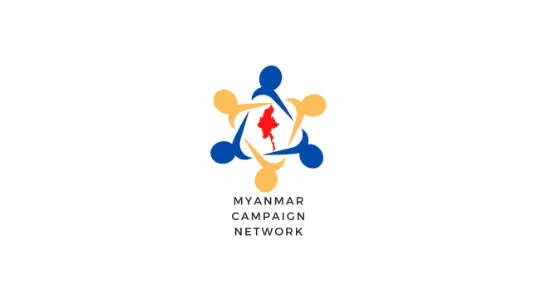Australian and US Sanctions on Myanmar Banks Proving Effective, Yet Critical Gaps Remain
28 June 2024

A new report by Tom Andrews, the Special Rapporteur on the situation of human rights in Myanmar, identifies Australian and US sanctions on Myanmar Foreign Trade Bank (MFTB) and Myanma Investment and Commercial Bank (MICB) as the most impactful sanctions on Myanmar’s repressive State Administration Council (SAC) in the past year. Australia’s sanctions in February this year bolstered earlier measures by the United States and Canada. Despite progress, the report highlights critical gaps in international sanctions coordination that the junta continues to exploit.
“Banking on the Death Trade: How Banks and Governments Enable the Military Junta in Myanmar”, presented at the Fifty-sixth session of the UN Human Rights Council, shows that international action has effectively reduced the SAC’s acquisition of weapons, dual-use technologies, manufacturing equipment, and materials via the formal international financial system by one-third, from US$377 million to $253 million in just a year.
However, two other state-owned banks, Myanma Economic Bank and Myanma Agricultural Development Bank, full networks in the jet fuel supply chain, and other high-impact targets such as natural resource state-owned enterprises remain unsanctioned. These gaps have allowed the junta to shift financial institutions and circumvent sanctions.
Following Singapore’s 2023 investigation into weapons transfers from Singapore-based entities, arms exports from Singapore have significantly decreased. However 16 banks in seven countries have facilitated the junta’s military procurement, and 25 banks have provided correspondent banking services to Myanmar’s state-owned banks since the coup. This has allowed Thailand has become the leading source of military supplies for the SAC, with transactions doubling from $60 million in FY2022 to $120 million in FY2023.
With a consistent increase in resistance control and junta losses escalating since October 2023, as reported by the Special Advisory Council For Myanmar, the junta now has minimal control in townships on Myanmar’s borders. These losses have led to a fivefold increase in airstrikes in 2024 targeting core civilian infrastructure such as schools, hospitals, religious buildings, and camps for internally displaced persons. While Australia also sanctioned 3 entities in the jet fuel supply chain in February, Amnesty International revealed new tactics to import aviation fuel despite sanctions.
Daw Zin Mar Aung, Union Minister of Foreign Affairs for the National Unity Government of Myanmar said, “The recent report by the Special Rapporteur on the situation of human rights in Myanmar highlights both progress and pressing gaps in both Australia’s and the international community’s response to the junta’s brutal regime. We urge the Government of Thailand to thoroughly investigate and halt all arms exports and financial support to the junta. Simultaneously, we appeal to the Australian Government to coordinate with other states supporting human rights in Myanmar to implement multilateral and coordinated sanctions.”
Dr Tun Aung Shwe, National Unity Government of Myanmar Representative to Australia said, “We congratulate the Australian government for the success of its decisive actions in sanctioning Myanmar Foreign Trade Bank (MFTB) and Myanma Investment and Commercial Bank (MICB). Further coordinated international sanctions are vital to cutting off the junta’s resources and ensuring the protection and rights of the people of Myanmar.”
Tasneem Roc, Campaign Manager, Myanmar Campaign Network said, “The escalation in violence demands urgent action to protect the lives and rights of Myanmar’s civilians. We call on the Australian Government to expand its sanctions to include significant state-owned enterprises including Myanma Economic Bank, Myanma Agricultural Development Bank, Myanma Oil and Gas Enterprise, Myanma Timber Enterprise, and full networks of entities and individuals in the jet fuel supply chain.”
Announcements
21 May 2025
Open letter: Malaysia must lead ASEAN with principle, not hypocrisy, to address the Myanmar crisis

Progressive Voice is a participatory rights-based policy research and advocacy organization rooted in civil society, that maintains strong networks and relationships with grassroots organizations and community-based organizations throughout Myanmar. It acts as a bridge to the international community and international policymakers by amplifying voices from the ground, and advocating for a rights-based policy narrative.